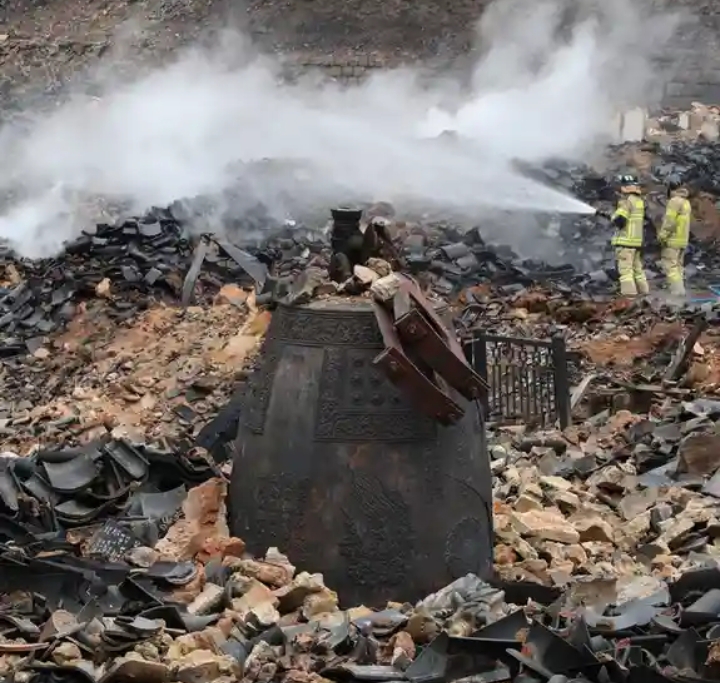Overnight rains and cooler temperatures helped South Korean firefighters contain deadly wildfires that have killed 28 and displaced over 37,000. Authorities are reassessing firefighting strategies as climate change worsens wildfire conditions.
Rains Aid Firefighters in Battling Deadly South Korea Wildfires


Overnight rains and cooler temperatures have provided much-needed relief for firefighters battling raging wildfires in southeastern South Korea. These devastating fires have resulted in the deaths of 28 people and forced thousands from their homes, marking one of the worst wildfire crises in the country’s history.
The situation remains severe as South Korea struggles with its worst wildfires on record. However, authorities have reported significant progress in containing the flames. On Friday, the national forest service announced that a major forest fire in Yeongdeok county—one of several blazes ravaging the southeastern region—had been successfully contained.
Officials stated that as of early Friday, 95% of the reported fires in Uiseong county had been extinguished, while 85% of the fires in the neighboring Andong city had also been brought under control.
Hopes for further containment have risen due to improved weather conditions. “Hazes have been diminished because of the rain last night, so that’s favorable for securing visibility. Also, temperatures are now lower than in the last few days, so things are very favorable for putting out the wildfires,” said Korea Forest Service Minister Lim Sang-seop. He further assured that all available resources would be mobilized to contain the remaining fires as soon as possible.
The wildfires, which initially ignited in Uiseong, spread rapidly and have scorched approximately 45,000 hectares of land, including areas of historic significance. The fires have also displaced over 37,000 residents, forcing authorities to undertake massive evacuation efforts.
To combat the crisis, authorities deployed more than 125 helicopters to support firefighters, who have faced enormous challenges due to strong winds and prolonged dry conditions. Despite these efforts, the sheer scale of destruction has prompted calls for a reassessment of firefighting strategies.
Lee Cheol-woo, the governor of North Gyeongsang Province, emphasized the need for an overhaul in fire management policies. His concerns were echoed at a government response meeting, where acting President Han Duck-soo acknowledged the unprecedented severity of the disaster. “We are nationally in a critical situation with numerous casualties because of the unprecedented rapid spread of forest fires,” he stated.
Experts warn that climate change is playing a significant role in intensifying the frequency and severity of such wildfires. Rising global temperatures, prolonged droughts, and shifting weather patterns have created conditions that make wildfires more difficult to control. As South Korea grapples with this disaster, the crisis underscores the growing threat posed by climate change and the urgent need for enhanced preparedness and mitigation strategies.

 বাংলা
বাংলা  Spanish
Spanish  Arabic
Arabic  French
French  Chinese
Chinese 
